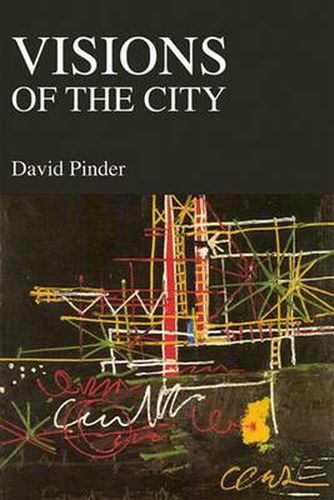Readings Newsletter
Become a Readings Member to make your shopping experience even easier.
Sign in or sign up for free!
You’re not far away from qualifying for FREE standard shipping within Australia
You’ve qualified for FREE standard shipping within Australia
The cart is loading…






Aims to rekindle elements of Utopianism through the study of utopian visions This book is a dramatic account of utopian visions of the city in the twentieth century. It explores their radical demands for new spaces and ways of living, and considers their effects on planning, architecture and struggles to shape urban landscapes. Such visions, it shows, have played a crucial role in informing understandings and imaginings of the modern city. The book critically examines influential traditions of utopian thought associated with such figures as Ebenezer Howard and Le Corbusier, uncovering the political interests and anxieties that lie behind their ideal cities. Alongside their proposals it also sets avant-garde perspectives including those of the surrealists, who challenged fundamental conceptions of urbanism in western Europe. At the heart of the book is an original encounter with the explosive ideas of the situationists. Tracing the subversive practices of this small group, it convincingly explains the significance of their revolutionary attempts to transform urban space and why they still matter today. The book not only recovers vital moments from the past hopes and dreams of modern urbanism, it also contests current claims about the ‘end of utopia’, arguing that reconsidering earlier projects can play a critical role in developing utopian perspectives for the future.
$9.00 standard shipping within Australia
FREE standard shipping within Australia for orders over $100.00
Express & International shipping calculated at checkout
Aims to rekindle elements of Utopianism through the study of utopian visions This book is a dramatic account of utopian visions of the city in the twentieth century. It explores their radical demands for new spaces and ways of living, and considers their effects on planning, architecture and struggles to shape urban landscapes. Such visions, it shows, have played a crucial role in informing understandings and imaginings of the modern city. The book critically examines influential traditions of utopian thought associated with such figures as Ebenezer Howard and Le Corbusier, uncovering the political interests and anxieties that lie behind their ideal cities. Alongside their proposals it also sets avant-garde perspectives including those of the surrealists, who challenged fundamental conceptions of urbanism in western Europe. At the heart of the book is an original encounter with the explosive ideas of the situationists. Tracing the subversive practices of this small group, it convincingly explains the significance of their revolutionary attempts to transform urban space and why they still matter today. The book not only recovers vital moments from the past hopes and dreams of modern urbanism, it also contests current claims about the ‘end of utopia’, arguing that reconsidering earlier projects can play a critical role in developing utopian perspectives for the future.